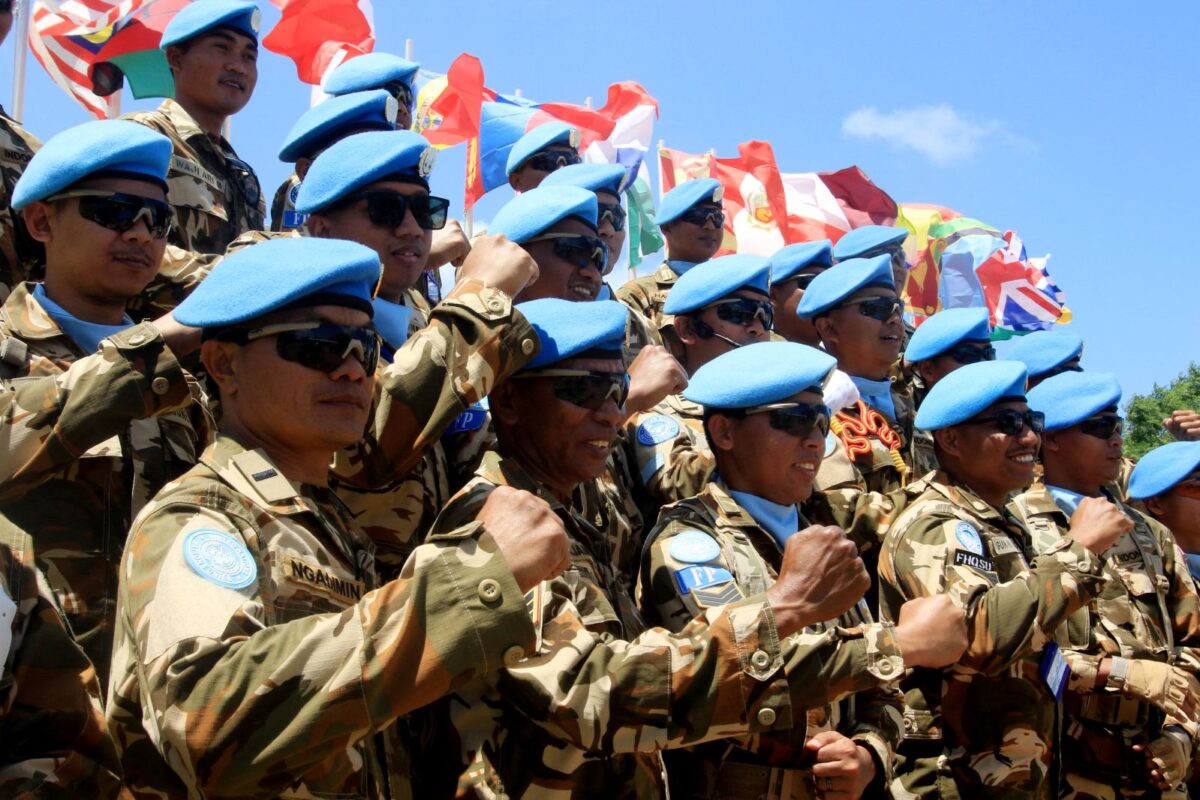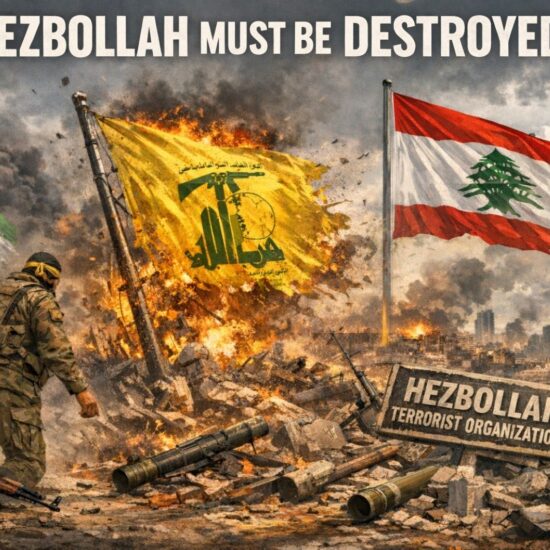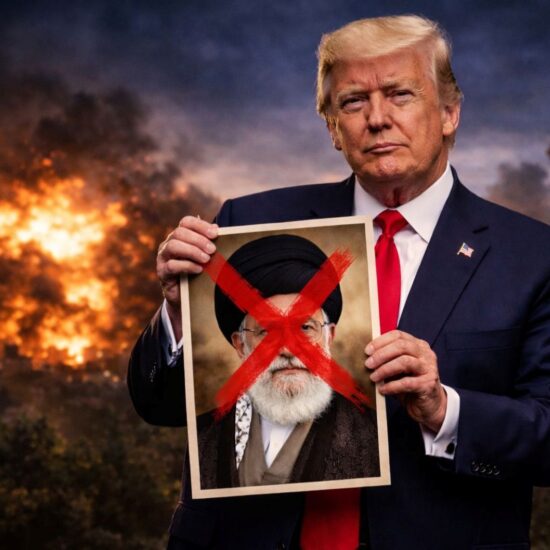
: Despite widespread rumors, UNIFIL continues its operations in South Lebanon, with its future hinging on the UN Security Council’s decision in August, while experts argue that its presence remains vital for maintaining fragile stability
As tensions escalate along Lebanon’s southern border, the future of the United Nations Interim Force in Lebanon (UNIFIL) is facing unprecedented uncertainty. Backed by Israel, the United States is reportedly considering moves to dismantle the 47-year-old peacekeeping mission, sparking alarm in Beirut amid a sharp rise in Israeli airstrikes across the country. According to reports, the Trump administration had previously explored the option of withdrawing U.S. funding from global peacekeeping operations, including UNIFIL, as part of broader budget cuts—a position that appears to be resurfacing in Washington.
The potential shuttering of UNIFIL, which was created in 1978 following Israel’s first invasion of Lebanon, comes at a volatile moment. The mission—comprising nearly 10,000 peacekeepers from close to 50 countries—has long served as a buffer and deconfliction mechanism between Hezbollah and Israel in the tense area stretching from the Litani River to the border. But with Israel now allegedly pushing for the Lebanese army to take over UNIFIL’s role in confronting Hezbollah, questions are mounting about the peacekeepers’ continued relevance and safety.
Adding to the crisis, Israel has stepped up hostilities against UNIFIL in recent months, including a rare and serious incident in which Israeli forces fired on a UNIFIL base—an act not seen since the 2023 ceasefire between Israel and Hezbollah. At the same time, UNIFIL has faced growing friction with residents of southern Lebanese villages, with recent assaults on peacekeepers condemned by both UNIFIL leadership and the Lebanese Foreign Ministry.
As the UN Security Council prepares to vote on renewing UNIFIL’s mandate in August, the mission stands at a crossroads—caught between international political maneuvering, community-level tensions, and the looming threat of regional escalation.
Growing tensions
In the most recent assault on a UNIFIL patrol, the Lebanese Army launched a security operation Tuesday in the southern town of Deir Qanoun al-Nahr to track down those involved. The state-run National News Agency reported that the raid led to scuffles between soldiers and local residents, with Al-Jadeed TV noting that several civilians were injured during the clashes.
The violence followed an earlier confrontation in the same town, where a resident physically struck a UN peacekeeper during a heated exchange with the patrol unit.
Responding to the incidents, Lebanon’s Foreign Ministry issued a strong denunciation of the attack, warning against any threats to the safety or operational freedom of UN peacekeepers. It called for legal action against those responsible, describing the attack as a breach of both national and international obligations.
The Ministry also reaffirmed Lebanon’s support for UNIFIL and its mission, as outlined in UN Security Council Resolution 1701, emphasizing the importance of the peacekeepers’ presence in maintaining calm and stability in the country’s volatile south.
Journalist Ali Amin warns that “there are very real dangers looming over UNIFIL’s mandate” if current confrontations continue to escalate. He points out that, despite attempts to paint these clashes as grassroots opposition, “what we’re really seeing are provocations aimed at weakening the force that stands between Hezbollah and Israel.”
Amin underscores that, for most residents of southern Lebanon, “UNIFIL’s presence is welcomed—they’d rather see international peacekeepers here than nothing at all.”
Amin stresses that UNIFIL’s core role is strictly observational: “Under the UN’s rules of engagement, these troops have no right to fire—they exist to bear witness.” He cautions that if UNIFIL were to leave, “Israel would be given free rein to operate without even the pretense of international oversight,” unleashing “far greater aggression against Lebanese territory.”
Regarding the recent skirmishes in places like Deir Qanoun al-Nahr are genuinely popular uprisings, Amin claimed that this wasn’t spontaneous local anger—”it’s directed agitation”, pointing to a pattern of incidents where civilians confront peacekeepers unaccompanied by the Lebanese Army. He warns that such deliberate friction will become a bargaining chip in the run-up to UNIFIL’s August mandate vote: “If Lebanon wants the mission to continue, it must demonstrate concrete steps to protect UNIFIL and uphold Resolution 1701—and not simply issue statements of support.”
Ultimately, Amin argues, preserving UNIFIL isn’t just about military balance—it’s “an assertion that the international community still cares about Lebanese sovereignty.” Without that symbolic presence, he says, “we’ll enter a new phase of vulnerability, where the only question left is how far Israel will extend its operations—and what Lebanon can do, with its own forces, to stop it.”
What happens now?
In recent days, there were growing rumours about the UNIFIL halting its operations in South Lebanon, which UNIFIL spokesperson Andrea Tenenti denied and said that it is up to the UN Security Council to decide on the future of the mission after August.
Tenenti stressed that “the operation has not stopped” and that the peacekeeping mission continues to function as usual, in coordination with the Lebanese Armed Forces and in support of local communities.
“The mission is needed in South Lebanon,” Tenenti told NOW, adding that there is strong international support for its continuation. He emphasized that UNIFIL plays a vital role in maintaining a fragile stability, acting as a communication channel between the Lebanese and Israeli sides to prevent escalation and misunderstandings.
Despite past and present difficulties and challenges, the mission has remained on the ground, Tenenti noted. “We did not leave. We stayed to try to assist in bringing back stability to this region.” He noted that UNIFIL’s support includes joint patrols with the Lebanese army, training programs, medical and engineering services, and demining operations.
Beyond its military coordination, UNIFIL also plays a key role in civilian support, Tenenti added. “We carry out daily activities that range from providing medical and veterinary services to making donations, rebuilding roads, and clearing rubble left behind by conflict. We’re also actively engaged in demining efforts to remove landmines and other unexploded ordnance.”
He described the presence of UNIFIL as a critical stabilizing force. “It’s a tool that can be used to move toward lasting peace in Southern Lebanon,” he said, calling the mission an “important presence” and a “referee” that helps monitor and report developments for the international community.
Tenenti also pointed to UNIFIL’s economic and social contributions, describing it as a large job provider in the South. “Everything we do is sourced locally—from food for the peacekeepers to contracts for infrastructure projects. The economic impact is evident,” he said.
He concluded by saying that imagining a South Lebanon without an international presence would be “unimaginable,” given the role UNIFIL plays in both security coordination and community support.
As uncertainty looms over the coming months, the future of UNIFIL and the broader regional dynamics remain tied to both international decisions and local realities. Amid rumors, shifting alliances, and persistent instability, what happens next in South Lebanon will depend not only on political will but also on the resilience of the communities living through these uncertain times.








